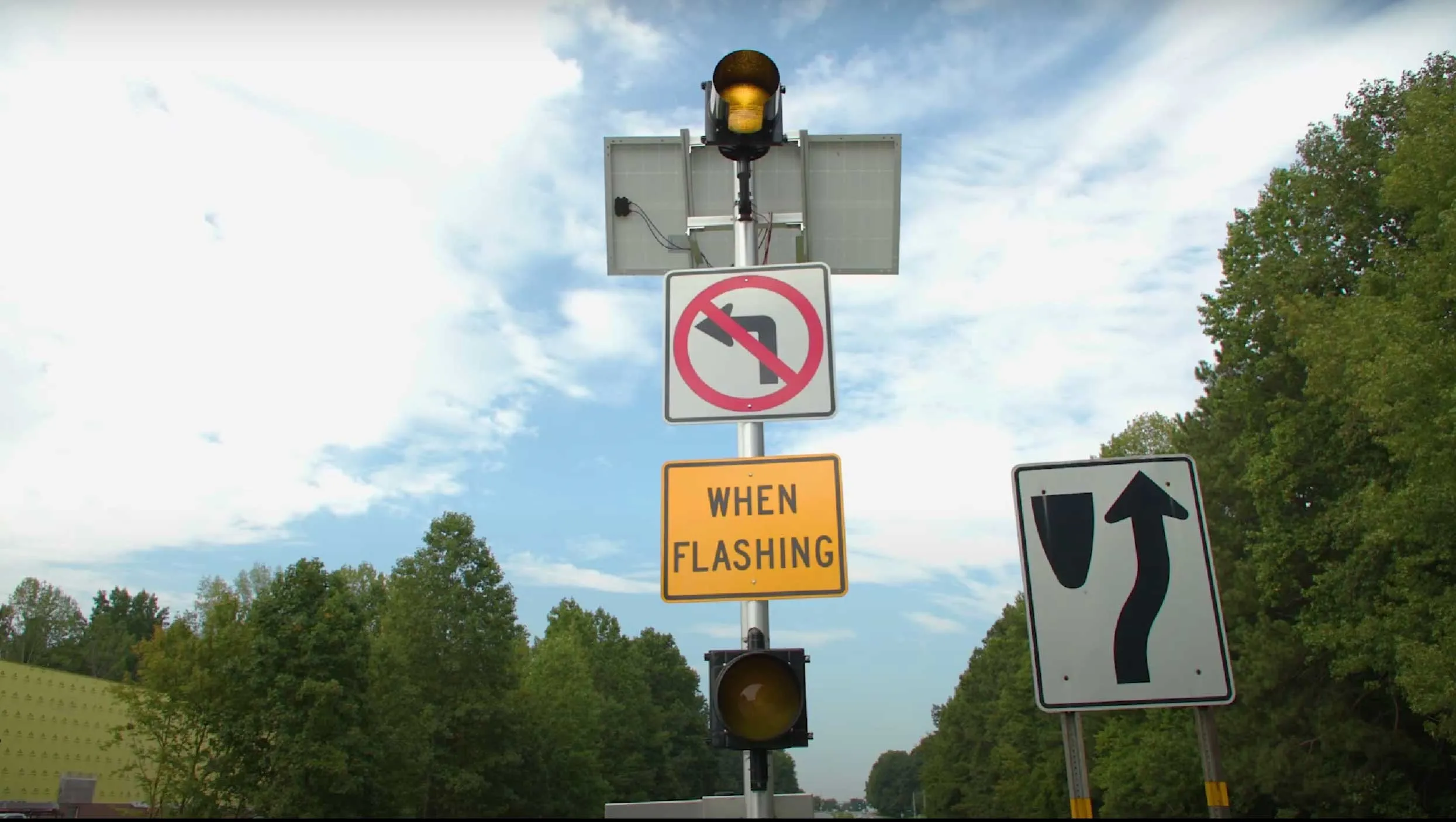
A pilot project in the US state of Georgia has reportedly reduced left-turn traffic car crashes along a busy four-lane highway.
The project is using a system developed by Applied Information in partnership with Wavetronix to enhance safety at unprotected left turns in the smart mobility testing ground of Peachtree Corners.
“One of the pilot locations, on Peachtree Industrial Boulevard, saw upwards of six car crashes annually,” said Brandon Branham, assistant city manager of Peachtree Corners. “Since piloting this technology, police reports have shown a 25% decrease in accidents at this left-turn location.”
Crossing lanes of traffic is a leading cause of crashes, with unprotected left turns accounting for more than half of all crashes when crossing the pathway of other vehicles, according to a US federal study. Additionally, more than one-third of all fatal motorcycle accidents involve another vehicle making a left-hand turn in front of a motorcycle.
Bryan Mulligan, chief executive of Applied Information, said the challenge of the unprotected left turn is a significant one in the traffic industry. Quincy Guerra, the Wavetronix technical manager in Georgia, noted that Wavetronix’s mission is, through new technology, to improve the safety and efficiency of the world’s roads.
Applied Information's Intelligent Left Turn Solution alerts motorists when it is unsafe to make a left turn. Using radar detection, cloud computing and an advanced algorithm, it monitors the speed and trajectory of oncoming traffic, triggering warnings when it is potentially unsafe to turn.
Using this technology is especially crucial in areas with obstructed views or where high-speed oncoming vehicles might cause misjudgments of traffic gaps. Compatible with C-V2X - connected Vehicle to Everything - technology, the solution marks a significant advancement in the potential to reduce the occurrence of unsafe left turns.
Based on the pilot project’s success, Wavetronix and Applied Information said they are now working with their distributors to make the solution commercially available in 2024.
Wavetronix, founded in 2000, is based in Springville, Utah, with regional offices located in UK, France, China, Singapore and throughout the US.
Applied Information develops smart cities, C-V2X and intelligent transportation system solutions for the surface transportation sector. Key products are smart traffic signals, school zone safety beacons, emergency vehicle pre-emption and intelligent street lighting. Founded in 2011 and based in Alpharetta, Georgia, the company also operates the Infrastructure Automotive Technology Laboratory (iATL), an incubator and developer of connected vehicle applications.
Applied Information's iATL has a partnership with the Curiosity Lab, based in and owned by Peachtree City, to develop connected vehicle applications.
Curiosity Lab is a 5G-enabled intelligent mobility and smart city living laboratory. Designed as a proving ground for IoT, mobility and smart city emerging technologies, the centrepiece of the lab is a three-mile (5km) public autonomous vehicle roadway for testing C-V2X technologies.
Additional infrastructure includes intelligent traffic cameras and traffic signals, smart streetlights, the US’s first 'IoT Central Control Room' implemented in a city and a 2,322m² (25,000 square foot) innovation centre. Curiosity Lab says that it is one of North America’s only real-world testing environments and is available for use free of charge.









